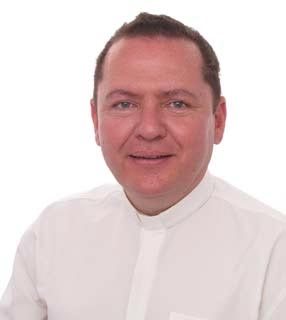André Alves, with the assistance of Luciane Marins

Fr. Rafael Solano Duran (personal file)
The Church considers the family as the first natural society, holder of their own rights and origins, and put in the center of social life. Exercising their educative mission, the family contributes to the common good and constitutes the first school of social virtues, which all societies need, says the Compendium of Social Doctrine of the Church.
For Father Rafael Solano Duran, Doctor in the Moral Theology and Assessor of Bioethics of the South Region II of the National Conference of Brazilian Bishops (CNBB), the family is more than former of values, it is constructor of virtues, through which people become more united.” The virtues are something very strong in the life of the family and the first of the virtues that is born is testimony.”
The important value that the family constructs is the dignity of work, says the priest. However, he also explains that forming for work without the virtue of honesty can develop persons that are more materialistic than honest.
“One family that forms their children in the value of work perhaps does not form their child in the value of honesty. However, in the Christian environment, the family forms and forges in the individual the virtue of being honest and being honest he will have a disposition for work. From this, all the work that will involve the family will be honest work,” he explained.
When one creates only the value of work, emphasized Fr. Rafael, many times he forgets the means and ends up seeing working as “crazy” giving priority to the material and forgetting the virtue of honesty.
Fr. Rafael also stressed the family as the first place in which the people should feel safe, but he affirmed that many times the opposite happens. “A person’s first unsafe place is his house. Many times the person in the house does not feel welcome, he feels abused, mistreated. Many adolescents feel more secure with people of their own genus in the middle of their group, because their they have an echo, when, in the house, they don’t feel validated, they don’t have anyone that listens to them.”
On this, Fr. Rafael asks: “Who are you growing in your family?” People capable of progressing? he asks. “Congratulations, you will have a society in progress! Are you creating a society capable of discussing of solving issues? Congratulations you are having partners. And so on…” he said.
For the priest, the family is the place of formation of people in their totality. In it is formed character, dignity, being worker, professional, and finally in it is formed the Christian. “The most beautiful thing I have in life and I have to today is that I grew up in the family in which I grew up. There I learned to play and to fight, to cry and to smile, to discuss and to solve.”
Witness
The missionary of the Canção Nova Community, Fabiana Azambuja, lives this experience of having as a school of learning. For her, the family is the school of virtues, in which the parents should be educators.
The virtues are dispositions, habits and strengths to do well. We as parents need to be attentive in the day by day, from the hour that we wake up, we have breakfasat, we pack for school, we do fun things and other activities which are the dispositions that exist in our children and teaching them the practice,” said the mother of the family.
Fabiana who is the mother of three sons, and is expecting her fourth, gave concrete examples of how her family may live the dynamic of teaching-learning of the day by day virtues.
translated from Portuguese

